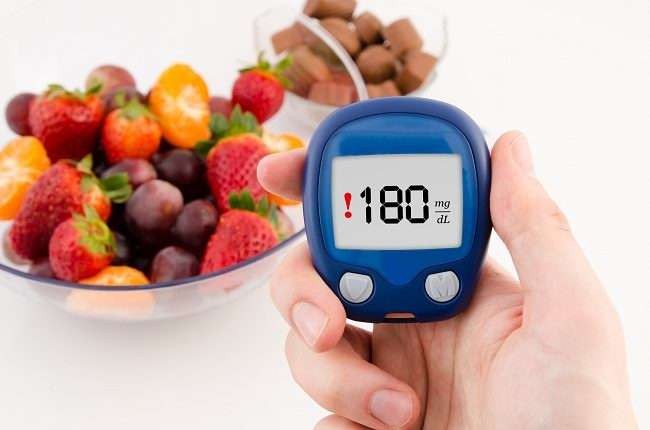To get the sugar content can certainly be done through food. Some foods also contain natural sugars as well as artificial sugars, such as in fast food and drinks.
Even some people unknowingly have excess blood sugar. Excess sugar levels actually also cannot be underestimated because it will cause many health problems such as diabetes, and other dangerous diseases that may cause death.
And here are some signs when someone has excess blood sugar as well as dangerous diseases of excess blood to watch out for.
Normal Levels of Blood Sugar in the Body
The human body normally has normal sugar levels after eating no more than 140 mg/dL. Meanwhile, normal blood sugar levels during fasting ranged from 72-99 mg/dL. However, in conditions of diabetes and prediabetes, blood sugar levels can rise quickly. This increase in sugar levels can cause several symptoms.
Signs of Excess Sugar
1. Tired quickly
Sugar is an important source of energy for the body. However, high sugar levels in the blood can actually interfere with the body’s ability to process sugar into energy. As a result, the body will become weak and tired quickly.
2. Often feel thirsty
A person who feels excessive thirst must also watch out for an increase in the frequency of urination, because this condition can be a sign that the body has excess sugar. A buildup of sugar in the blood can also make the kidneys work harder to filter and absorb excess sugar.
When the kidneys can’t balance it, the sugar will be excreted in the urine, so urination can become more frequent and the fluid that comes out through the urine is also more. The loss of a lot of fluids through urine is what causes thirst even though you have drunk a lot.
3. Always feel hungry
People who always feel hungry can also be a sign of excess sugar levels. In diabetics, the sugar absorbed from food does not enter the cells so that the body does not get enough energy. This is what makes the body continue to feel hungry and increase appetite.
4. Dry mouth
One of the most common signs of excess sugar is a dry mouth. This is usually caused by a lack of saliva production in the mouth. Dry mouth will increase the risk of fungal and bacterial infections in the mouth.

5. Skin color changes
Increased blood sugar levels can cause changes in skin color to become darker, especially in the folds of the body, such as the neck or knuckles. This condition is known to result from insulin resistance, which is common in people with type 2 diabetes.
Increased blood sugar levels are closely related to diet and lifestyle. Consumption of excess food, not paying attention to calorie needs, and rarely exercising are factors that can cause blood sugar levels to rise drastically.
6. Vision becomes blurred
Excess sugar in the blood can also affect the presence of fluids and tissues in the body, including the lens of the eye. As a result, blood sugar levels become high and it will interfere with vision in sufferers.
If not treated immediately, this condition can make the lens of the eye become swollen, damage the blood vessels in the retina of the eye, and even cause blindness.
7. Increases the risk of obesity
The accumulation of sugar in the body will also increase the risk of fat accumulation in the waist and abdomen. It can also increase the risk of obesity.
8. Liver damage
Sugar that enters the bloodstream from the digestive tract will be broken down into glucose and fructose. However, fructose is not produced by the body in significant amounts because it is not really needed by the body.
So, consumption of excess sugar can make the body excess fructose which can overload the liver. This can lead to health complications.
Symptoms of Excess Sugar
Soaring blood sugar can cause physical problems, which are characterized by several symptoms, such as the following:
1. Easily feel tired and sleepy;
2. Often feel thirsty;
3. Itchy and dry skin;
4. Weight loss;
5. Vision becomes blurred;
6. Increased frequency of urination, especially at night;
7. Weight loss, but increased appetite;
8. Difficulty concentrating;
9. Headache;
Even so, in some cases an increase in glucose can also cause symptoms such as:
– Skin and vaginal infections
– Nerve damage that causes increased skin sensitivity, especially in the legs
– Indigestion and stomach disorders, such as diarrhea or chronic constipation
– Wounds are difficult to heal or long.

Risk of Excess Sugar
Excess sugar levels can also increase the risk of harmful health problems.
1. Increases the risk of heart disease
A high-sugar diet is associated with an increased risk of many diseases, such as heart disease, which is the number one cause of death worldwide.
Some evidence suggests that a high-sugar diet can lead to obesity, inflammation, high triglycerides, blood sugar and blood pressure levels. In addition, consuming too much sugar, especially from sugar-sweetened beverages, has also been linked to atherosclerosis, a disease characterized by fatty deposits that clog arteries.

2. Acne
One of the bad effects of excess sugar can cause acne. A diet high in refined carbohydrates, such as sugary foods and drinks, has also been linked to acne. Foods with a high glycemic index, such as processed candy, raise blood sugar more quickly than foods with a lower glycemic index.
Sugary foods quickly raise blood sugar and insulin levels, leading to increased androgen secretion, oil production and inflammation, all of which play a role in the development of acne.
3. Increases the risk of Cancer
Excessive consumption of sugar can also increase the risk of certain cancers. First, a diet of sugary foods and drinks can lead to obesity, which significantly increases the risk of cancer.
In addition, a diet high in sugar increases inflammation in the body which can lead to insulin resistance, both of which increase the risk of cancer.
4. Flatulence
Launching from International Foundation for Gastrointestinal DisordersMost foods with high carbohydrates can cause gas in the stomach. Then, sugar is a type of carbohydrate. In addition, there are certain types of sugar that can produce gas compared to others, namely:
– fructose,
– lactose,
– raffinose, day
– sorbitol.
The four sugars above tend to produce gas, even in a healthy digestive system.
5. High blood pressure
High blood pressure is one of the dangers due to consumption of sugary foods which is the cause of other diseases.
For example, obesity due to excessive sugar consumption increases blood glucose levels. Over time, this can increase the risk of cardiovascular disease, such as coronary heart disease.
This condition can also develop high blood pressure which is a major risk factor for heart attacks and strokes.

How to Reduce Sweet Consumption
Excess sugar can be prevented in several ways.
1. Try to always read the nutritional information label on the food or beverage product you want to buy.
2. If you like eating snacks, you should choose fruit as a snack, so choose fresh fruit or frozen fruit.
3. Replace sugar consumption with healthy spices such as ginger, cinnamon, or nutmeg.
4. If you like to drink soda, you should reduce it, because fizzy drinks are high in sugar, so replace it with healthier water.
5. Limit the use or consumption of sugar, chocolate, syrup, and honey as sweeteners.
–


